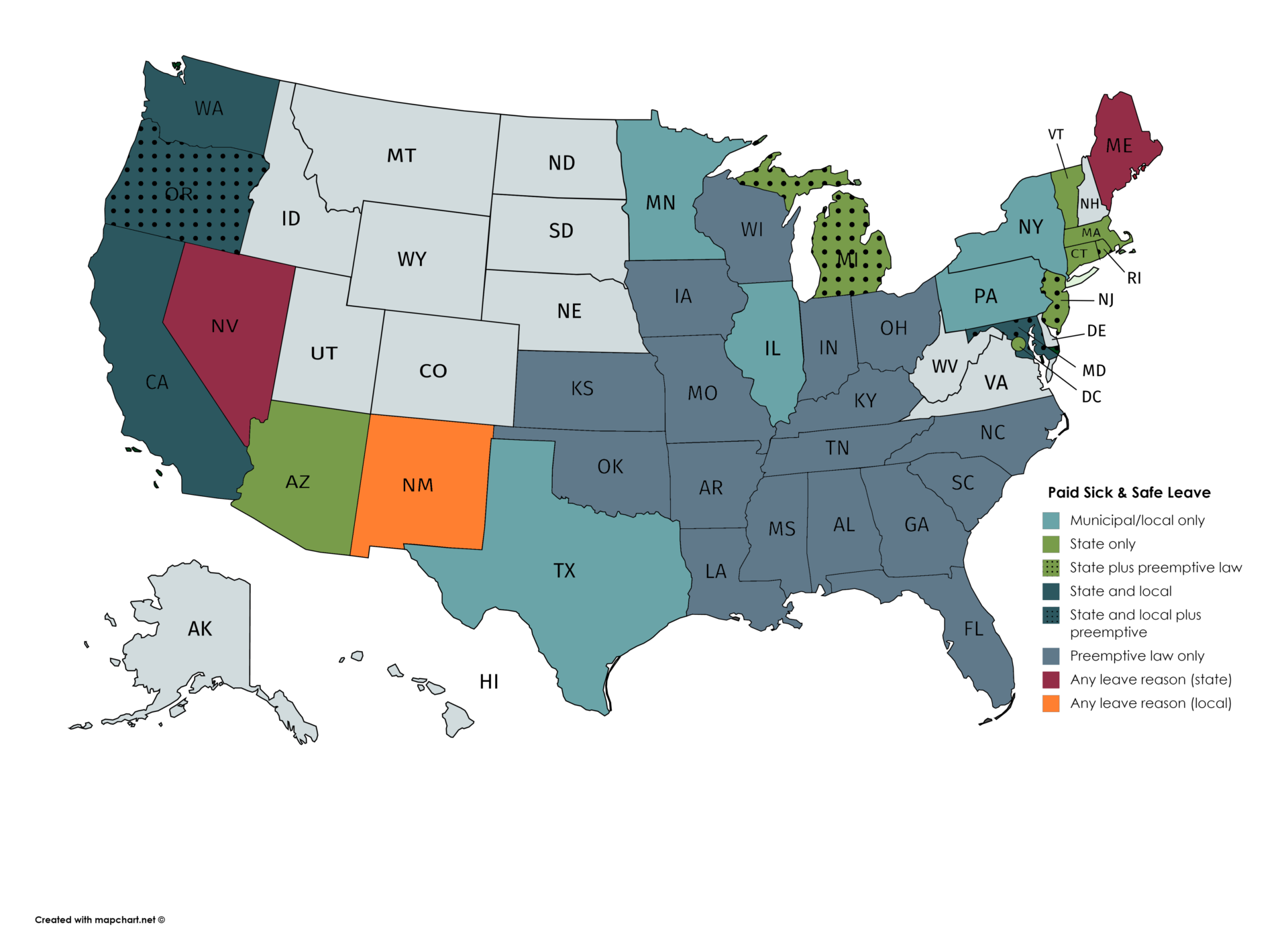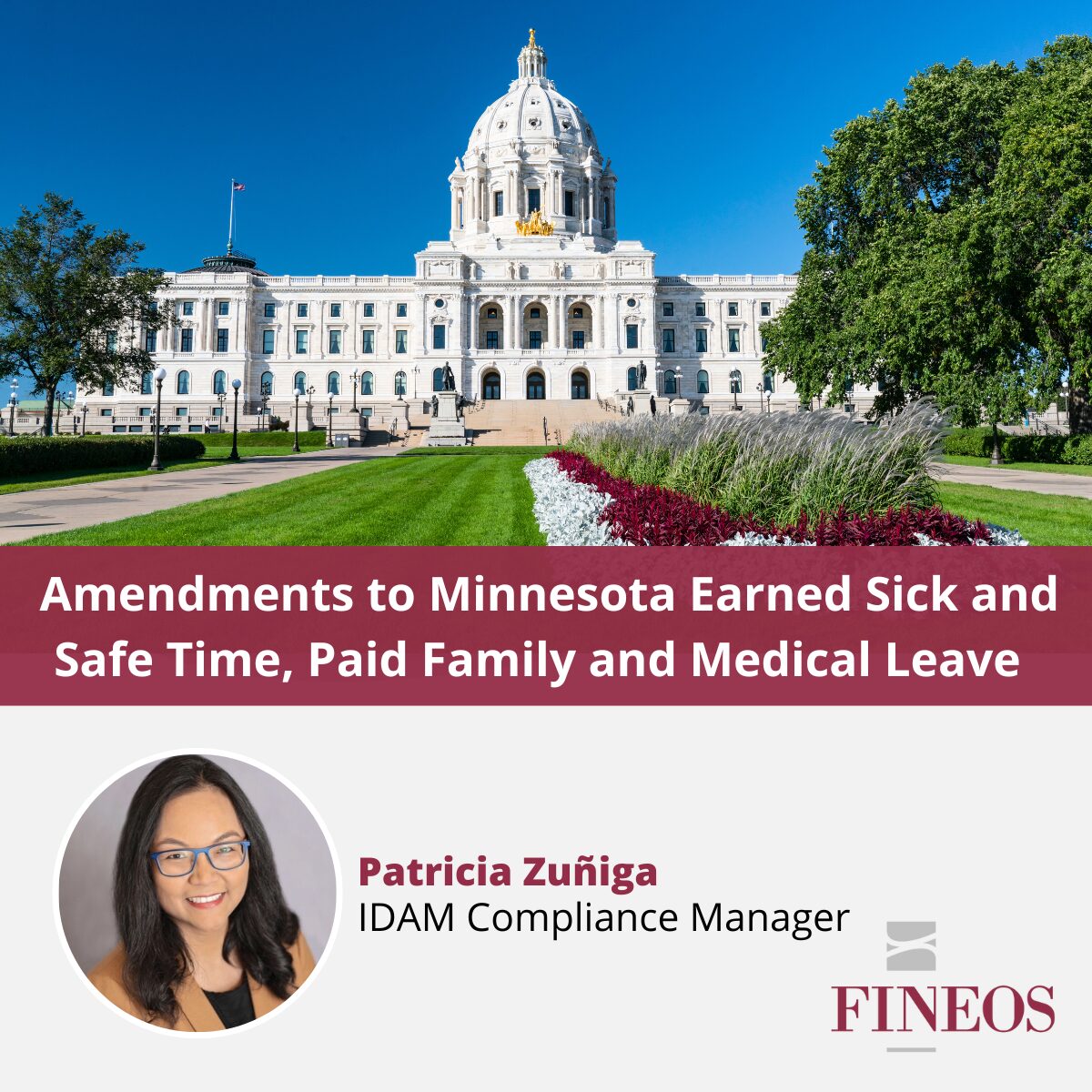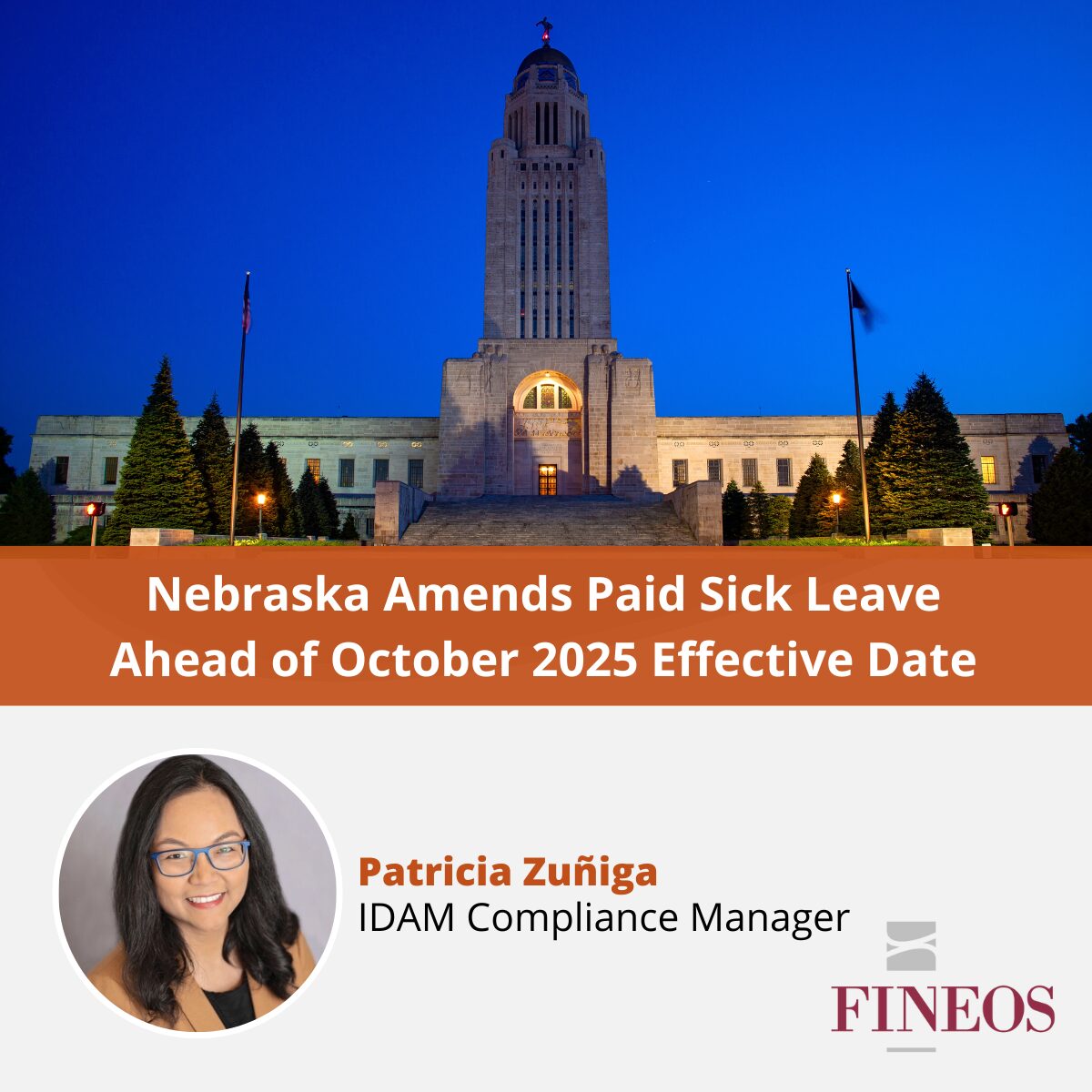In the wake of the COVID-19 virus outbreak, also known as coronavirus, people are asked to self-quarantine if they are not well, or cancel travel in an effort to contain the outbreak. For many, 32 million U.S. workers according to the Bureau of Labor Statistics, this is not possible without access to work from home accommodations or paid sick or paid medical/disability leave.
The past five years has seen an influx in legislated and employer sponsored paid leave plans. For employers, the reasons for supporting such plans were primarily to attract and retain talent. Now, employers may have a different reason: to keep employees home to prevent the spread of infectious disease.
For employees who are exposed to the virus, they are advised to self-quarantine for 14-21 days. If their family member, such as an elderly adult or child is exposed, the employee may need to stay home from work to attend to the quarantined family member. This becomes a hardship when employees do not have access to paid sick leave, kin care leave, or paid family and medical leave and are unable to work from home as an accommodation.
Insurance companies who offer short-term disability must determine if their policies’ definitions of disability cover a quarantined, exposed person who ultimately tests negative for COVID-19. Employers who provide self-insured short-term disability may have more leeway in granting STD coverage for such a situation than their risk-based insurance counterparts. And when an employee is diagnosed with COVID-19, many insured and self-insured STD policies have a one- or two-week waiting period, leaving the employee without wage replacement benefits during the quarantined and recovery period.
While 13 states, the District of Columbia, nearly 20 cities, and 4 counties have mandated that employers offer paid sick leave or paid leave for any reason, 18 states have passed laws preventing municipalities and counties from passing laws requiring employers to offer paid sick leave, known as pre-emption laws. Many in our industry are wondering if the COVID-19 outbreak will see a surge in legislation amending or repealing those pre-emption laws and an increase in states and local government passing mandatory PSL laws. At the federal level, democrats in the house and senate have introduced bills that would require employers to provide up to 7 days of accrued paid sick leave, increasing to 14 days immediately in the event of a public emergency like the COVID-19 outbreak. At the state level, Governor Cuomo of New York has already declared that he will request an amendment to the state’s proposed PSL bill to specifically cover those quarantined for COVID-19 exposure. Similarly, some employers are developing a separate paid policy or reconsidering their comp time and leave programs.
The federal Family and Medical Leave Act (FMLA) will likely cover someone who is diagnosed with COVID-19 but may not necessarily cover someone who is quarantined or caring for someone who is quarantined. Whether the FMLA or similar state law covers such an absence will ultimately depend on whether the employee or family member meets the definition of a serious health condition under such law, such as, per the FMLA, whether the person meets the criteria of condition requiring multiple treatments or was incapacitated for more than 3 days and receives the requisite treatment. The United States Department of Labor (DOL) has issued guidance regarding FMLA’s applicability to absences related to COVID-19 as well as guidance for the workplace during the spread of COVID-19.

Employers should also consider whether an accommodation under the Americans with Disabilities Act (ADA) may be appropriate, including a workplace accommodation or a leave of absence. The Equal Employment Opportunity Commission (EEOC) issued a statement reminding employers of its pandemic preparedness guidance to assist in identifying the ADA’s application to pandemic circumstances, including whether the ADA’s “direct threat” concept applies.
COVID-19 is spotlighting the nation-wide debate over paid leave, job protection, and workplace accommodations and is likely to accelerate an already changing leave of absence landscape in the United States.


